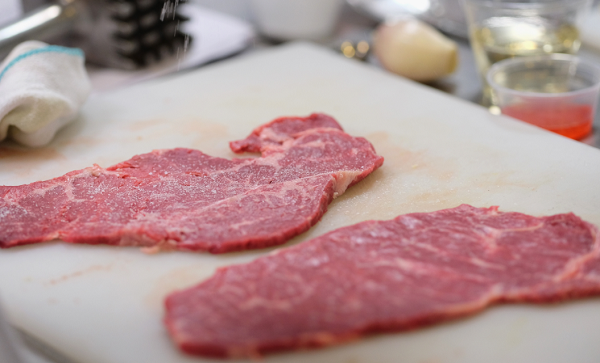What Causes Alzheimer's? Meat Eaters On Western Diet Face Higher Risk, Study Says

A new study revealed people following Western diets that are rich in meat and high-fat dairy products have at a higher risk for developing Alzheimer’s.
According to Dr. William Grant, author of the study, researchers have discovered that people who follow a more Mediterranean diet, which is known to be heavy with fruits, vegetables, grains, low-fat dairy products, legumes and fish, have a significantly reduced risk of Alzheimer’s. The study also proved that eaters who consume even less meat content – like the eating habits of people in Japan, India and Nigeria – have an even smaller chance of developing Alzheimer’s.
In the study, Grant explained how “reducing meat consumption could significantly reduce the risk of Alzheimer’s disease as well as several cancers, Type 2 diabetes, stroke and chronic kidney disease."
“While the traditional Mediterranean diet is associated with about half the risk for Alzheimer’s disease of the Western diet, the traditional diets of countries such as India, Japan, and Nigera, with very low meat consumption, are associated with an additional 50 percent reduction in risk of Alzheimer’s,” he said.
The Alzheimer’s Association reported more than 5 million Americans have been diagnosed with the disease, which causes dementia, memory loss and other intellectual and behavioral disabilities. In the United Kingdom, over 800,000 people suffer from dementia and forms of Alzheimer’s.
Mediterranean and other diets that include smaller meat consumption have also been discovered to reduce risk of heart attack and stroke in people already suffering from heart disease.
A study examined more than 15,000 people in 39 countries with stable heart disease. During the four-year investigation, which was published in the European Heart Journal in April, researchers found that for every 100 people following a Mediterranean-based, there were three fewer heart attacks, strokes or deaths compared to 100 people maintaining Western eating patterns.
© Copyright IBTimes 2024. All rights reserved.






















